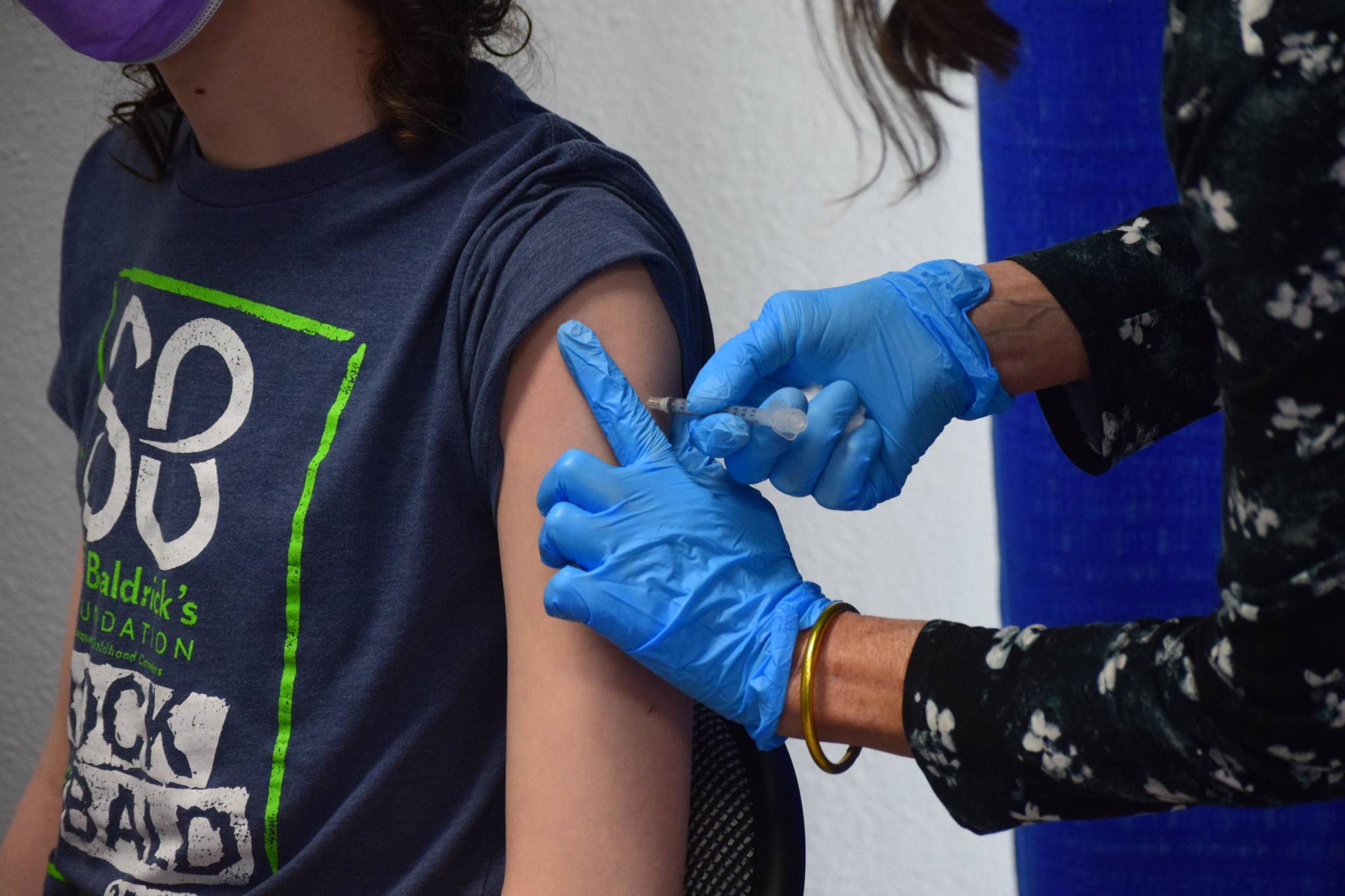Immunocompromised people are now encouraged to get a third COVID-19 vaccine dose, and booster shots for the general public may soon follow, according to state health officials.
The Centers for Disease Control and Prevention issued a recommendation Thursday, stating that people with moderately and severely compromised immune system conditions may receive extra protection against COVID-19 with additional PfizerBioNTech and Moderna mRNA shots.
In a press briefing Thursday with the state Department of Health and Social Services, Chief Medical Officer Dr. Anne Zink said extra doses are becoming available in Alaska.
“The vaccine series is essentially a three-dose series now, because we saw data that you had higher antibody loads when you have a three-dose series,” she said Thursday.
For those who still haven’t taken their first jab, Zink encouraged them to do so.
“If immunocompromised people have not gotten vaccinated, we would highly recommend they do it now as the delta variant is surging,” she said.
Safeway issued a press release on Thursday stating that additional doses are available at its pharmacies following the new recommendation from the CDC.
As of now, the CDC is not recommending a second Johnson & Johnson/Janssen vaccine dose for moderately and severely immunocompromised people.
President Joe Biden also announced this week his administration is pushing for COVID booster shot availability by Sept. 20.
The CDC’s Advisory Committee on Immunization Practices is expected to make an announcement soon about booster shots for the general public.
“We are ramping up for that,” Zink said Thursday.
The new guidance comes as more research suggests waning immunity eights months after the second dose of an mRNA vaccine.
According to Reuters, in an Oxford University study out of the United Kingdom the Pfizer and Astrazeneca shots fell from 85% and 68% efficacy rates to 75% and 61%, respectively, 90 days after the second dose.
Dr. Joe McLaughlin, an epidemiologist with the Alaska DHSS, said during the briefing Thursday that while the chances of catching COVID-19 increase slightly over time, research shows they still have efficacy rates in the 90th percentile for preventing hospitalization and more severe illness.
“So the bad news is we’re seeing a decrease in vaccine effectiveness against the SARS-CoV2 infection, but the good news is their maximum effectiveness … is robust against hospitalization,” he said.
The new booster shot recommendation is aimed at preventing COVID-19 contraction for those who have already been vaccinated for the majority of the year, Biden said during his announcement this week.

